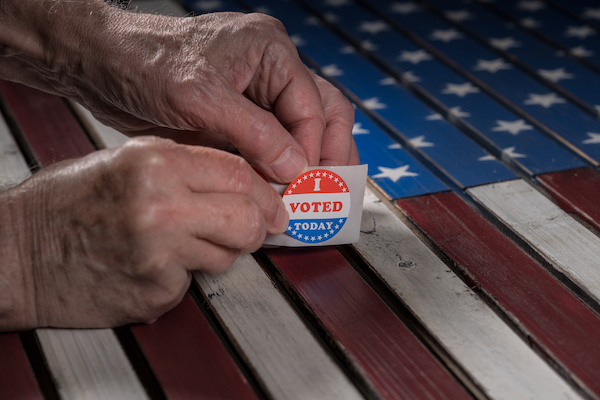A Critical Stake Seniors Might Have In The 2020 Elections

Coming close to election day some matters of serious concern escape attention. One of these is what effect the outcome of the elections will have on seniors who constitute a major voting block and, as frequently stated, seniors tend to vote. Remember that voting affects not only the Presidential election but also a multitude of other positions, some State and local and some national. This is not a party or a joke or whim. It has real impact.
A few weeks ago I reported on a surprising statement made by President Trump in the course of the campaign. The statement was, as reported by the Associated Press and as carried on television and seen and heard in the President’s words “at the end of the year, the assumption [being] that I win, I’m going to terminate the payroll tax, which is another thing that some of the great economists would like to see done…We’ll be paying into Social Security through the general fund…” See also AP, https://apnews.com at “Trump’s suggestion to eliminate payroll tax doesn’t add up.” We do not know who the “great economists” to whom the President refers since none were named and, in case there could be any question regarding the seriousness of the statement as to whether this was a slip of the tongue, Trump repeated it and also indicated the change would be permanent. This is a serious matter and concerns the funding of two of the most important programs affecting seniors -Social Security and Medicare and it is an absolute necessity in taking out a loan information regarding this funding to know the complete benefits of the funding. It also means seniors, in particular, have a critical stake in the outcome of this election since Social Security income and Medicare health programs if the President’s policy were implemented – would be placed in jeopardy. Here is how.
Is Social Security an Entitlement? I often hear seniors whom I represent and others stating “Social Security is no entitlement. I paid into it through my payroll taxes from the time I began working. I earned it.” Well, this change described by the President would change this process going into the future. It would mean that future wage earners would not be paying into the Social Security program which current recipients do and future recipients will depend on. In a period of not many years the fund would run low and then out of money unless constantly replenished through the “general fund.” The general fund is responsible for funding other government programs. This means Social Security would be in constant competition for funding with other budgetary programs. Why would anyone do this? The only answer, other than reducing what employees pay into the government, would seem to be to place Social Security recipients constantly at the mercy of elected officials to renew funding. In other words it would further politicize a fund that has been regarded as a bipartisan effort for so many years. This is not a partisan matter nor should it be as should be obvious from its history.
In 1981 Republican President Ronald Reagan, recognizing that Social Security recipients needed assurances regarding its funding, was concerned enough about the system and making its status permanent that he established the bipartisan commission under Alan Greenspan to make that happen. The Commission reported back with recommendations that were adopted and ensured its continuance for many more years. The policy recommendation by the current President would change this.
Financial planners have long described retirement as a “three-legged stool.” One source of income is personal savings, another is pensions, and the third Social Security. With many employers no longer offering pensions and savings at risk through the pandemic, drastic cuts to Social Security could be catastrophic.
Medicare is the second program at risk. Medicare is also, in part subsidized by the payroll tax. If deprived of this funding source, senior health care would be at risk. Medicare was established in 1965 since insurers did not want to provide health insurance for seniors for obvious reasons.
There are other concerns. For those seniors not yet old enough to belong to Medicare, the Trump administration is fighting through the Courts to invalidate the Affordable Care Act, Obamacare, including the provision requiring health insurers to insure despite preexisting conditions.
About the Author Janet Colliton
Esquire, Colliton Law Associates, P.C. Janet Colliton has practiced law for over 38 years, 37 of them in Chester County, Pennsylvania, a suburb of Philadelphia. Her practice, Colliton Law Associates, PC, is limited to elder law, Medicaid, including advice, applications and appeals, and other benefits planning including Veterans benefits, life care and special needs planning, guardianships, retirement, and estate planning and administration.
